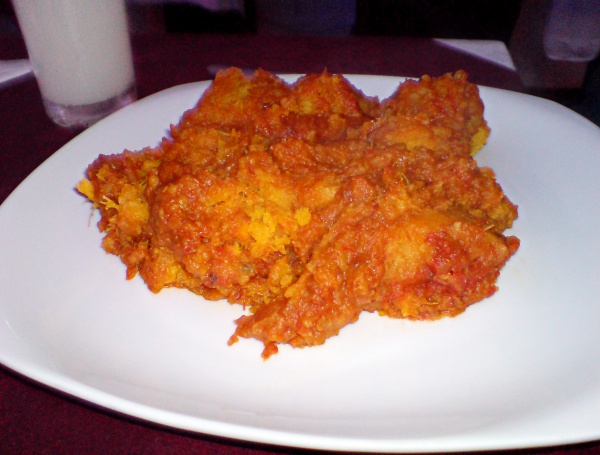Facts About Nigerian cuisine
Nigerian cuisine is a delightful and diverse tapestry, reflecting the rich cultural heritage of the country’s many ethnic groups. Known for its bold use of spices, herbs, palm oil, and groundnut oil, Nigerian food excels in creating flavorful sauces and soups that tantalize the taste buds.
During celebrations, Nigerian feasts are renowned for their vibrant and lavish spreads. On the streets, you’ll find an array of delicious snacks, often grilled or deep-fried to perfection.
Rice dishes are a staple in Nigerian cuisine, featuring popular options such as coconut rice, jollof rice, fried rice, and more unique varieties like pate, tuwo masara, tuwo shinkafa, and plain white rice. Beans also play a starring role in dishes like akara, moi moi, and ewa aganyin.
Meat lovers will feel right at home with Nigerian favorites such as suya, tsire, kilishi, balangu, nkwobi, and asun. These dishes often feature grilled or spiced meats that are both flavorful and satisfying.
Soups and stews form the heart and soul of Nigerian cooking. Classics such as banga soup, ofe akwu, miyan kuka, ayamase, ewedu soup, egusi soup, pepper soup, and afang are rich and hearty, often served with side dishes like dodo (fried plantains), moin moin (steamed bean pudding), and plantain pudding.
Breakfast in Nigeria is equally exciting, with dishes like masa and sinasir (rice cakes), and yams served with red stew or scrambled eggs. For those craving a snack, options include chin chin (fried dough), puff-puff (fried dough balls), akara (bean cakes), meat pie, and coconut candy.
To wash it all down, Nigerians enjoy a variety of beverages such as kunu (a millet-based drink), fura (a fermented milk drink), palm wine, zobo (hibiscus tea), and soy milk.

 Chad
Chad